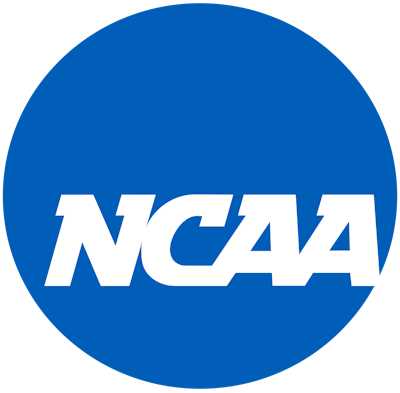
A former UMass Lowell men's soccer head coach violated ethical conduct rules when he directed a student-athlete to pay him thousands of dollars from that student-athlete's scholarship funds, according to an agreement released by the Division I Committee on Infractions. The coach also provided impermissible benefits to three student-athletes, directed men's soccer student-athletes to exceed countable athletically related activities during the COVID-19 pandemic, and tampered with a prospective transfer who later enrolled at and competed for UMass Lowell. Finally, the former head coach again violated ethical conduct and cooperation rules when he failed to cooperate with an NCAA investigation.
The school and enforcement staff agreed that the then men's soccer head coach violated ethical conduct rules in January 2021 when he directed a student-athlete to pay him $10,000 from his approximately $20,000 athletics scholarship, which the coach said he would redirect to other student-athletes on the team. The student-athlete ultimately paid the coach a total of $7,000 in four installments. Because the student-athlete did not engage in behavior that would allow the school to reduce his aid and was not notified in writing that his aid would be reduced or given an opportunity for a hearing regarding the reduction, the head coach's actions violated NCAA rules.
The school and enforcement staff also agreed that over the course of four academic years, the former head coach again violated ethical conduct rules when he knowingly provided impermissible benefits in the form of cash loans to two men's soccer student-athletes and provided the use of a car to a third. In total, the value of the impermissible benefits was $4,173. As a result, the three student-athletes competed in a total of 64 games and received actual and necessary expenses while ineligible.
Additionally, the school and enforcement staff agreed that during the COVID-19 pandemic when the team's season had been canceled, the former head coach and two former assistant coaches directed men's soccer student-athletes to participate in off-campus practices, which the coaching staff directed and observed. Specifically, during the fall 2020 semester, the institution permitted coaches to conduct limited on-campus practices. However, the head coach informed the school's compliance staff that he would not be conducting countable athletically related activities during that fall and, therefore, did not declare a playing season as required by NCAA legislation. Thus, the practices were impermissible and exceeded CARA limitations by 26 hours.
Further, the school and enforcement staff agreed that the former head coach engaged in impermissible recruiting communications — also referred to as "tampering" — with a prospective student-athlete who was enrolled at a Division III school. Throughout the fall 2019 semester, the head coach regularly texted the prospect before obtaining written permission or authorization to contact that prospect from his then-current school. The student-athlete later transferred to UMass Lowell and competed in 17 contests and received actual and necessary expenses while ineligible.
Finally, the head coach and an assistant coach engaged in additional recruiting violations during the COVID-19 pandemic recruiting dead period. More specifically, the coaches arranged for a prospect to receive an in-person tour of the campus from a men's soccer student-athlete.
Due to his personal involvement in the violations — and his actions to involve assistant coaches in those violations — the former head coach did not promote an atmosphere for compliance and violated head coach responsibility rules.
The head coach also did not meet his obligation to cooperate with an investigation when he refused to answer enforcement staff's questions related to specific possible violations. Again, this failure to cooperate violated ethical conduct rules.
This case was processed through the negotiated resolution process. The process was used instead of a formal hearing or summary disposition because the university and enforcement staff agreed on the violations and the penalties. The Division I Committee on Infractions reviewed the case to determine whether the resolution was in the best interests of the Association and whether the agreed-upon penalties were reasonable. Negotiated resolutions may not be appealed and do not set case precedent for other infractions cases.
The university and enforcement staff used ranges identified by the Division I membership-approved infractions penalty guidelines to agree upon Level I-mitigated penalties for the university and Level I-aggravated penalties for the head coach. The decision contains the full list of penalties as approved by the Committee on Infractions, including:
- Two years of probation.
- A $5,000 fine plus 1% of the men's soccer budget.
- A two-year reduction in men's soccer official visits by 12.5% of the average number of official visits during the previous four years.
- A four-week reduction in unofficial visits.
- A four-week reduction in off-campus recruiting.
- A 26-hour reduction in men's soccer CARA activities during the 2023-24 academic year.
- A five-year show-cause order for the former head coach. During the show-cause order, any employing member institution shall restrict the former head coach from any athletically related position. If the former head coach becomes employed in the first year following the show-cause order, he shall be suspended for 100% of the men's soccer regular season.
- A vacation of all records in which the student-athlete competed while ineligible. The university must provide a written report containing the contests impacted to the NCAA media coordination and statistics staff within 14 days of the public release of the decision.
Members of the Committee on Infractions are drawn from the NCAA membership and members of the public. The members of the panel who reviewed this case are Norman Bay, attorney in private practice; Vince Nicastro, deputy commissioner and chief operating officer of the Big East; and Dave Roberts, special advisor to Southern California.




































